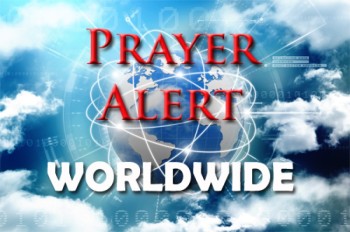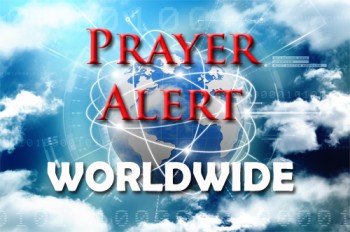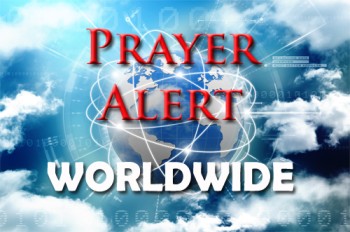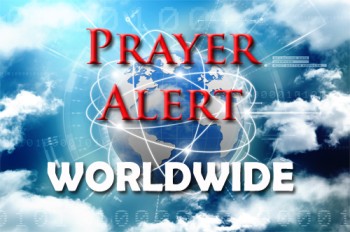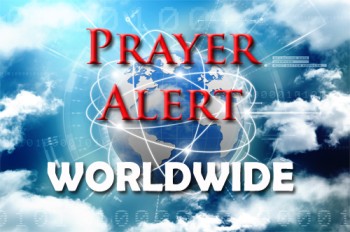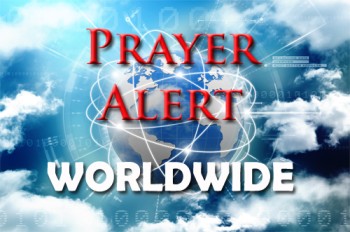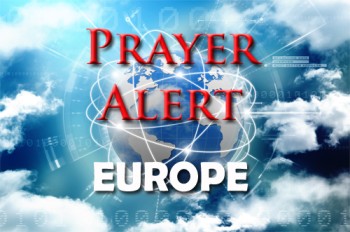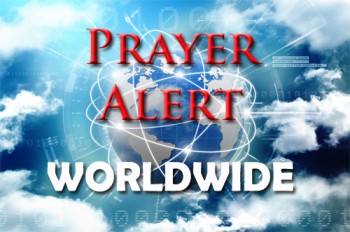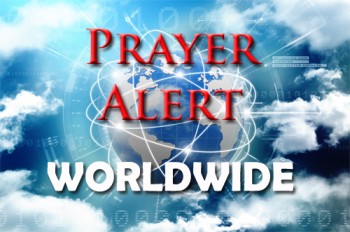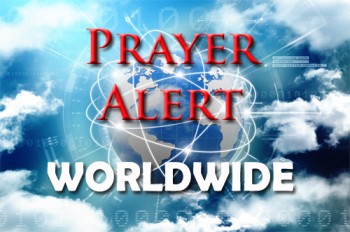Displaying items by tag: Latin America
Brazil floods: 75 dead, over 100 missing
Massive floods have devastated a state in the south of Brazil, resulting in at least 75 deaths and 103 people missing. Over 88,000 residents have been displaced; 16,000 have sought refuge in schools and temporary shelters. The floods have caused extensive damage and significant disruptions to electricity and communications. Over 800,000 people are currently without a water supply. The state’s governor, calling the devastation unprecedented, has called for a comprehensive reconstruction plan, while President Lula has emphasised the importance of proactive disaster management. This environmental disaster is the fourth major flooding event in the state within eight months.
Ecuador: president declares state of emergency
On 30 April Ecuadorean president Daniel Noboa decreed a state of emergency in five coastal provinces, lasting sixty days, because of ‘internal armed conflict’. The measure marks the second such declaration by Noboa, who took office in November with promises to turn around a deteriorating security situation which has led to a spike in violent deaths and other crimes. The police and armed forces will be deployed in the provinces for ‘tactical combat operations’ against organised armed groups’. The government blames the violence (including the dramatic invasion of a television station and mass hostage-taking of prison guards in January) on drug-trafficking gangs.
Mexico: angry farmers target thirsty avocado orchards
In Mexico's drought-stricken Michoacan state, subsistence farmers are taking direct action against commercial farms, particularly avocado orchards, which are depleting water sources. Angry residents have organised teams to remove illegal water pumps and breach unlicensed irrigation ponds, sparking potential conflicts with avocado growers, some of whom have ties to drug cartels. The drought, exacerbated by increased water use for lucrative export crops, has led to disappearing rivers and lakes. The residents are demanding fair access to water resources; they have proposed giving 20% of the water to the orchard owners. The government has been urged to address the root causes of the conflict and prevent further environmental degradation.
Argentina: massive protests on austerity measures
Hundreds of thousands have rallied in Buenos Aires and other cities, protesting against president Javier Milei's austerity measures. The demonstrations united students, professors, trade unions, leftist political parties, and even conservative politicians against the budget cuts which threaten the country's universities. Milei, dismissing the crisis as political manoeuvring, faces criticism for slashing spending across various sectors to achieve a zero deficit. The impact of the cuts is evident as universities struggle to maintain basic services amid soaring inflation (currently 290%). The University of Buenos Aires (UBA) exemplifies the crisis, experiencing power cuts because it cannot cover its electricity bill. The outcry underscores the human cost of Milei’s measures and the urgent need to preserve Argentina's education system.
Colombia: millions of displaced people long for peace
Consuelo Manyoma, a resident of San Isidro, waits anxiously for the time when her family can safely return home. Located along a strategic corridor for the cocaine trade, the village frequently experiences gunfire and threats. Two years ago, Manyoma's family and others fled, seeking refuge in Buenaventura. They are now in makeshift accommodation in a huge basketball stadium, enduring uncertainty and longing for peace. The country’s conflict, a bloody war between paramilitary groups, rebel militias, drug traffickers, and the army, has displaced 6.8 million people - one of the world's largest internally displaced populations. In another development, former president Alvaro Uribe is to face criminal charges for alleged links to some of the paramilitary groups: see
Colombia / Panama: failure to protect migrants criticised
Human Rights Watch (HRW) has criticised Colombia and Panama for failing to protect migrants and asylum seekers crossing the perilous Darien Gap jungle route between the two countries. The report highlighted inadequate protection and investigation of abuses, including sexual violence. The Darien Gap, fraught with natural hazards and criminal activity, is a favoured route for those fleeing violence and hardships; over 520,000 people used it in 2023. HRW urged Colombia to investigate a criminal gang's exploitation of migrants and allocate more resources for protection, and criticised Panama’s ‘controlled flow’ strategy, which it said needed to be modified. It also called for the appointment of a senior official to coordinate responses with the UN and humanitarian groups.
France / Brazil: Macron calls proposed deal ‘very bad’
During his visit to Brazil, Emmanuel Macron has called the proposed EU-Mercosur trade deal ‘very bad’. He called for a new agreement prioritising climate, biodiversity, and development. While Brazil is eager to sign, France, concerned about its farmers and environmental standards, has reservations. Brazilian officials remain hopeful, emphasising President Lula's commitment to strengthening ties with the EU. Macron also urged increased Brazilian investment in France and proposed collaboration in African markets. He plans to push for international standards promoting decarbonisation and environmental preservation at upcoming summits. His remarks reflect broader debates about balancing economic interests with environmental responsibilities.
Argentina: 11 convicted of crimes against transgender women
A landmark human rights trial, lasting nearly four years, concluded on 27 March with 11 former officials convicted of crimes against humanity. This was the first case to focus on the 1976-1983 military dictatorship’s practice of committing sexual violence against transgender women. The trial revealed new atrocities, enhancing the nation's understanding of its traumatic past. During those years, thirty thousand dissenters were abducted, tortured, and ‘disappeared’. The prosecutor said, ‘What is different about this trial is that for the first time in Argentina and in the world, crimes against humanity committed against trans women in the context of state terrorism are condemned.’ The military dictatorship promoted traditional Catholic values and viewed LGBTQ Argentines as subversives. Even being openly gay could lead to jail. The verdict marks a pivotal moment for accountability and remembrance in Argentina's turbulent history.
Argentina: soup kitchens hit by Milei’s austerity measures
In Merlo, long lines form outside communal soup kitchens as inflation soars, causing a hunger crisis among the country's poor. President Javier Milei's austerity measures, which have cut government spending, even funds for soup kitchens, have exacerbated the situation. It is estimated that soup kitchens and other similar groups now serve ten million people, out of Argentina's population of 46 million. However, advocates believe the actual number of food-insecure individuals could be higher due to informal hunger relief efforts in marginalised areas. Outrage is mounting, particularly after one minister promised to help the needy and then refused to meet the crowds outside her office the next day; instead she diverted funds to religious organisations. One social leader has criticised the government for failing to address hunger effectively, despite claiming to prioritise direct assistance.
Chile: hundreds missing as wildfires rage
Wildfires have been ravaging Chile's Valparaíso region, leaving hundreds missing and over 120 dead. President Gabriel Boric has described them as the worst disaster since the 2010 earthquake. The fires erupted during a heatwave, engulfing seaside towns normally cooled by sea breezes. Strong winds fuelled the blaze, quickly engulfing hillside communities. Drone footage reveals widespread destruction, with many unable to escape. Authorities are prioritising rescue efforts, with volunteers assisting those displaced. Nearly 15,000 homes have been damaged, and entire neighbourhoods razed. Boric has declared a state of emergency and imposed a curfew. Investigations are under way to determine if the fires were intentional.
